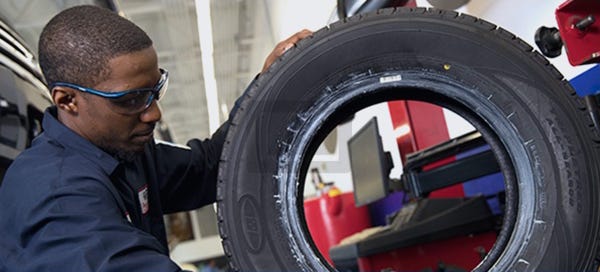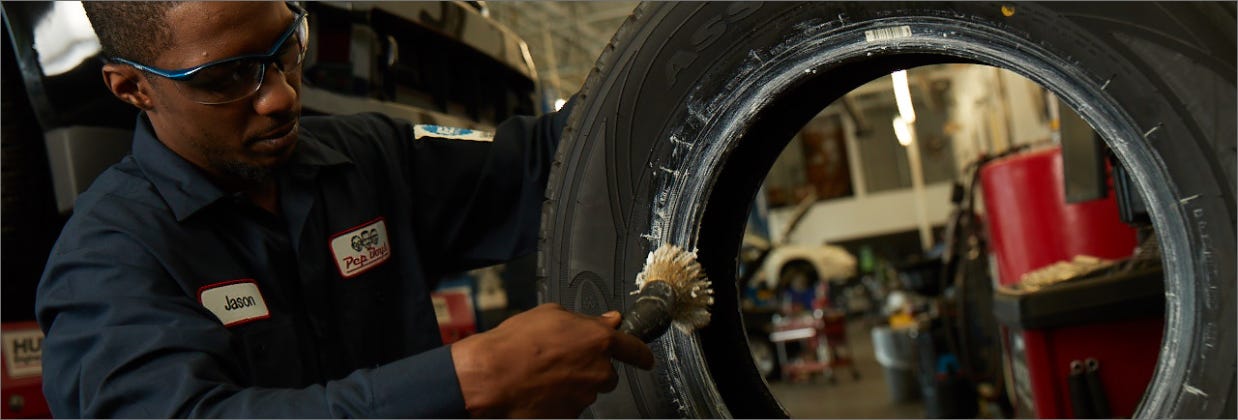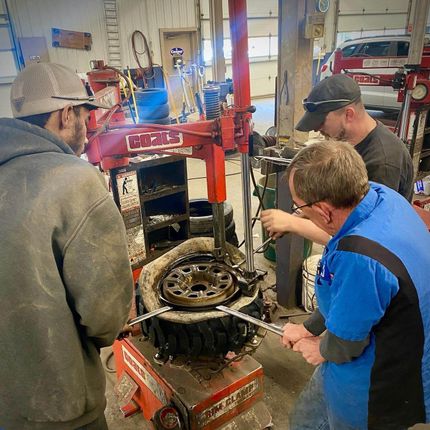Drive with Self-confidence: GMC Tires Service at Morris Tires
Drive with Self-confidence: GMC Tires Service at Morris Tires
Blog Article
Tire Solution: The Effect of Weather
When it pertains to making certain ideal performance and safety when traveling, comprehending the influence of weather condition problems on tire service is important. From scorching warm to icy roadways, each climate aspect can considerably influence tire capability and total driving experience. By delving into the impacts of differing weather conditions on tires, motorists can obtain important insights that might enhance their automobile's performance and long life. In this discussion, we will certainly check out the elaborate connection in between climate condition and tire solution, dropping light on the significance of weather-specific tire upkeep techniques and considerations.
Warmth and Tire Performance
When exposed to high temperature levels, tires experience modifications in efficiency that can substantially affect vehicle safety and handling. The heat created from extended driving or heat problems causes the tire rubber to soften, bring about decreased tread life and enhanced wear. As the rubber ends up being softer, the tire's hold when driving lessens, affecting braking distances and general traction. In extreme cases, extreme warm can even cause tire blowouts, posturing a severe security threat to the car and its residents.

Winter Effects
Cold climate conditions can have a considerable influence on tire performance and security. As temperature levels drop, tire rubber can harden, bring about decreased traction on icy or snow-covered roadways. In cool climate, tires may also shed atmospheric pressure more swiftly, which can impact managing and gas efficiency. In addition, chilly temperatures can cause tire sidewalls to stiffen, increasing the risk of damage from pockets or other road risks.
To alleviate the effects of cool weather condition on tires, it is critical to regularly inspect tire stress and inflate them to the manufacturer's suggested degrees. Making use of wintertime or all-season tires designed for winter problems can likewise boost grip and grip on icy or snowy roads. Proper tire maintenance, including normal examinations for wear and damages, becomes also much more crucial during colder months to make sure optimum efficiency and security.
Rainy Issues Influence
Throughout stormy problems, tire efficiency and safety and security can be significantly affected by the damp roadway surfaces and reduced visibility. The tread pattern of tires plays a vital role in keeping traction on damp roads. Tires with damaged treads are more prone to hydroplaning, where a layer of water develops up in between the roadway and the tire surface area, causing loss of traction. To combat this, drivers should on a regular basis check their tires for sufficient tread deepness and take into consideration buying tires especially created for wet conditions.
Furthermore, rainy climate can also lower exposure, making it challenging for drivers to see the roadway in advance plainly (GMC Tire Service). In such problems, it is important to readjust driving rates as necessary and maintain a secure complying with distance to permit unexpected stops. Effectively inflated tires can also assist in keeping control on damp roads by offering far better handling and hold
Snow and Tire Security
When driving in snowy problems, having the appropriate tires can make a considerable difference in safety and security and performance. Winter tires are developed with unique rubber compounds and step patterns to provide better grip on snow and ice contrasted to all-season tires.

Additionally, drivers ought to think about installing tire chains in extreme snowy conditions. Tire chains offer additional grip by grasping the snow and ice, enhancing stability and control. Nevertheless, it is very important to comply with maker instructions when using and installing tire chains to stop damages to the tires and automobile. By choosing the ideal link tires, preserving correct rising cost of living, and taking into consideration extra grip aids like visit site tire chains, chauffeurs can improve their security when browsing snow-covered roadways.
Weather-Related Tire Maintenance
When encountered with different weather problems, appropriate tire upkeep comes to be a vital element of vehicle safety and security and efficiency. Weather-related tire maintenance encompasses a series of practices focused on making sure ideal tire function and long life in different climate situations. One essential facet of weather-related tire maintenance is tire stress policy. Changing temperatures can create tire pressure to differ, impacting traction and fuel effectiveness. On a regular basis adjusting and examining tire pressure according to maker suggestions is crucial for safe driving in transforming climate condition. Additionally, tire tread deepness plays a considerable function in taking care of different weather components. Tires with appropriate walk depth offer far better grasp on wet or icy roads, minimizing the risk of hydroplaning or skidding. When tread wear gets to a particular depth is essential for preserving grip and security in adverse climate, examining tire step routinely and changing tires. By prioritizing weather-related tire maintenance, next chauffeurs can boost safety, enhance lorry performance, and lengthen the life expectancy of their tires.
Conclusion
To conclude, weather have a substantial impact on tire efficiency and safety and security. From heat impacting tire pressure and wear to cool weather condition minimizing traction, it is crucial to take into consideration the climate when preserving and utilizing tires. Stormy conditions can decrease grip and bring about hydroplaning, while snow can raise the risk of crashes if tires are not properly outfitted. Weather-related tire upkeep is critical in guaranteeing optimal performance and security on the roadways.
In this discussion, we will certainly check out the intricate connection in between weather condition conditions and tire service, losing light on the relevance of weather-specific tire maintenance methods and factors to consider.

Report this page